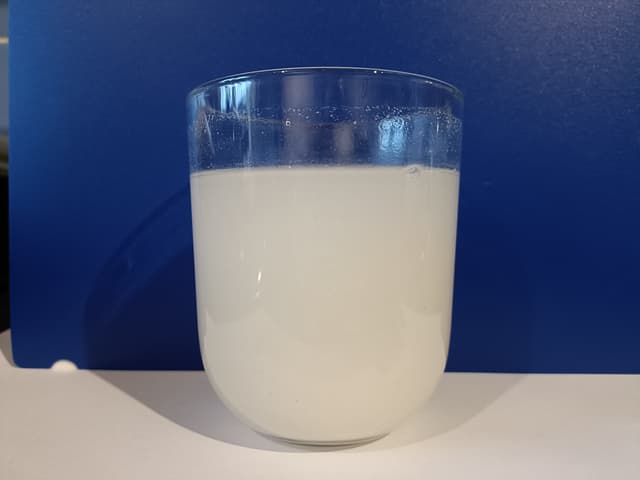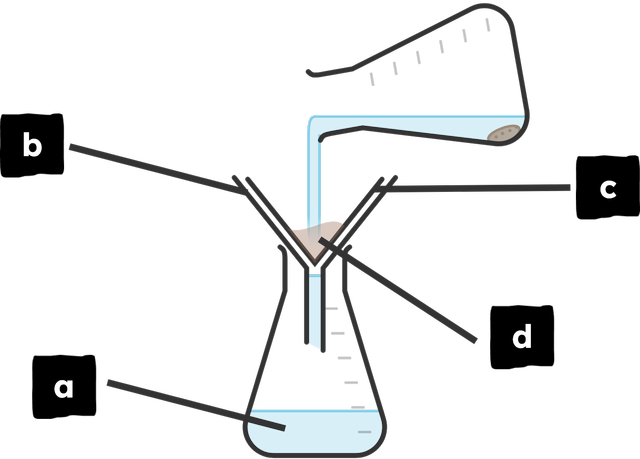Filtration
I can describe how to carry out filtration and explain how it works.
Filtration
I can describe how to carry out filtration and explain how it works.
These resources will be removed by end of Summer Term 2025.
Lesson details
Key learning points
- Filtration is a technique used to separate insoluble substances from a mixture with a liquid.
- Separation in filtration occurs due to the difference in size of particles.
- The terms 'filtrate' and 'residue' describe the components separated by the process of filtration.
Keywords
Filtration - Filtration is a technique to separate insoluble solids from a liquid by passing the mixture it is in through a filter.
Filtrate - A filtrate is the liquid component separated from a mixture as a result of filtration.
Residue - The insoluble component collected in the filter paper as a result of filtration is called the residue.
Component - A component refers to a part of something, e.g. a tyre on a car.
Common misconception
A funnel is the same as a filter.
A funnel streamlines movement, while a filter separates materials. Use everyday examples to highlight the difference, e.g. an oil funnel vs. an oil filter, or a coffee funnel vs. a coffee filter.
To help you plan your year 10 chemistry lesson on: Filtration, download all teaching resources for free and adapt to suit your pupils' needs...
To help you plan your year 10 chemistry lesson on: Filtration, download all teaching resources for free and adapt to suit your pupils' needs.
The starter quiz will activate and check your pupils' prior knowledge, with versions available both with and without answers in PDF format.
We use learning cycles to break down learning into key concepts or ideas linked to the learning outcome. Each learning cycle features explanations with checks for understanding and practice tasks with feedback. All of this is found in our slide decks, ready for you to download and edit. The practice tasks are also available as printable worksheets and some lessons have additional materials with extra material you might need for teaching the lesson.
The assessment exit quiz will test your pupils' understanding of the key learning points.
Our video is a tool for planning, showing how other teachers might teach the lesson, offering helpful tips, modelled explanations and inspiration for your own delivery in the classroom. Plus, you can set it as homework or revision for pupils and keep their learning on track by sharing an online pupil version of this lesson.
Explore more key stage 4 chemistry lessons from the Separating substances unit, dive into the full secondary chemistry curriculum, or learn more about lesson planning.

Equipment
See additional material.
Content guidance
- Risk assessment required - equipment
Supervision
Adult supervision required
Licence
Starter quiz
6 Questions
A substance which can dissolve in a liquid.
To divide something into its different parts.
A substance which cannot dissolve in a liquid.
The liquid in which a solute is dissolved to form a solution.
Formed when a solute dissolves in a solvent.

Exit quiz
6 Questions

filtrate
funnel
filter paper
residue


